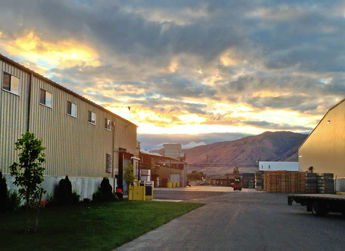 Allan Brothers switched its 25 forklifts from lead acid to lithium-ion |
A West Coast fruit and wine company was able to save nearly half a million dollars by switching its forklift fleet to lithium-ion batteries.
Allan Brothers installed the world's biggest fruit packing line in 2018. This meant the company would need a new battery space for a growing fleet of lift trucks.
This new, ventilated battery room was expected to cost USD440,000, and company management calculated that maintenance of the then-current lead acid batteries was already racking up 750 minutes of downtime and was costing USD56,000 annually.
Allan Brothers switched its 25 forklifts from lead acid to lithium-ion, which eliminated the need for the battery room and the high levels of labour and costs associated with the daily maintenance of lead acid batteries.
In addition to these long-term savings, there were instant benefits as well: batteries plugged in overnight were completely charged by the start of a new shift at 3 am. Quick-hit opportunity charging was used during shift breaks to further increase efficiency and prolong the lifespan of the batteries.
Also gone were the risks to preserving the hygienic production process required in the industry.
The solution involved OneCharge lithium-ion batteries, which met Allan Brothers' cost, hygiene, and space needs.
Allan Brothers recently diversified its portfolio by purchasing Sagemoor vineyards in Pasco, Washington.
According to OneCharge CEO Alex Pisarev, Li-ion forklifts are ideal for both the fruit and wine sectors.
"The wine business shifts with high and low seasons, which creates a challenge best met with effective equipment utilisation. Li-ion forklift batteries are the optimal choice to power equipment used with seasonal fluctuations, and they offer cost-effective benefits to warehouses of all sizes," he explains, noting that unlike lead acid batteries, Li-ion batteries can wait for six months in off-mode, without the risk of losing capacity or becoming inoperable.
In the wine industry, the production facility also must meet the highest standards of hygiene. A lithium-ion electric forklift battery produces zero pollutants and is a reliable and clean technology, a necessary feature for operations in the food and beverage industry, Pisarev adds.